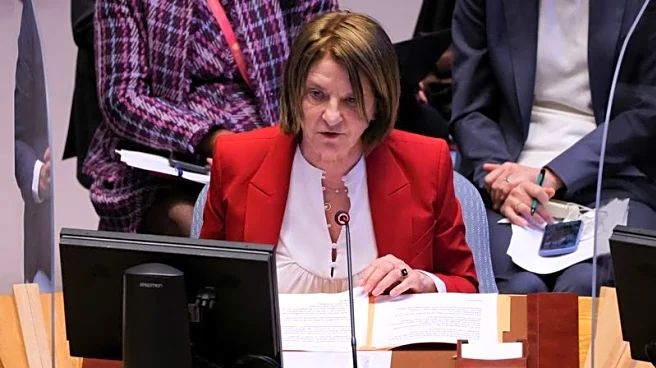What's Happening?
The Unifrance Rendez-Vous TV market in Le Havre concluded with discussions on the evolving global TV industry, particularly focusing on the challenges faced by French animation exports. Unifrance President Gilles Pélisson noted the pressures from streamers and consolidated media groups, while Gaëtan Bruel of CNC highlighted the impact of changing consumption patterns and economic models. Despite these challenges, French TV series continue to perform well internationally, with drama leading sales. However, animation exports to the U.S. have declined, affected by pubcasters' cuts and streamers' shift towards entertainment and sports.
Why It's Important?
The decline in U.S. purchases of French animation reflects broader shifts in the global TV market, impacting international sales and production strategies. This trend could affect the economic viability of French animation studios and influence the types of content produced. The emphasis on drama and crime series suggests a strategic pivot to cater to international demand, potentially reshaping the landscape of French TV exports. The situation underscores the need for strong intellectual property to drive sales in a risk-averse environment, affecting stakeholders from producers to distributors.
What's Next?
As the industry adapts to these changes, stakeholders may focus on strengthening co-productions and exploring new markets to offset declines in traditional areas like the U.S. The upcoming Mipcom event will be crucial for French sellers to refine their strategies and present new offerings. Additionally, efforts to standardize audience measurement across Europe could influence how content is marketed and sold, potentially leading to more transparent and reliable data for advertisers and producers.
Beyond the Headlines
The challenges faced by the French TV industry highlight the broader implications of geopolitical uncertainties and technological advancements, such as artificial intelligence, on media production and distribution. The industry's response to these challenges could set precedents for other countries facing similar issues, influencing global media policies and practices.










